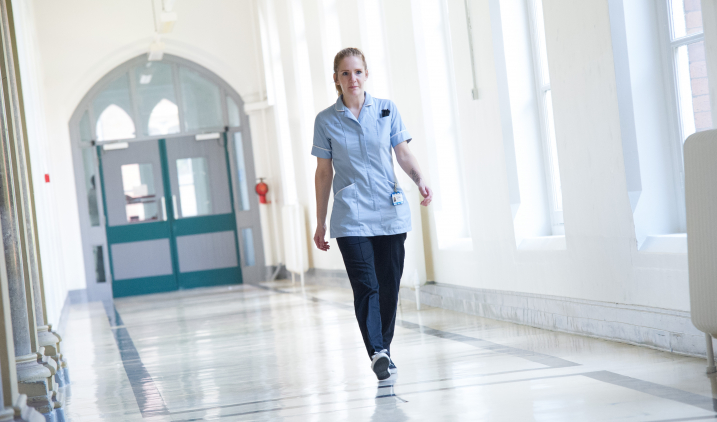Sport and exercise medicine
Doctors in sport and exercise medicine treat people with sport and physical activity-related injuries and work to improve the health of people through increased exercise, while also preventing and managing non-communicable diseases.
You’ll need excellent clinical history-taking and examination skills to accurately diagnose patients.

Life in sport and exercise
You’ll take a holistic approach to patient care and will need a first-class understanding of the physical attributes required to participate in a variety of sports.
Sport and exercise medicine is a new and broad specialty, and you’ll be expected to:
- provide accurate diagnosis for people with musculoskeletal injuries or illness who would like to exercise, or who would benefit from exercise
- implement and oversee rehabilitation programmes
- conduct workplace wellness and vocational outputs
- share your clinical expertise with other clinicians and allied healthcare professionals as part of a multidisciplinary team
- support sportspeople and assist them in maximising performance, reducing injury time and minimising the co-morbidity associated with sporting participation
- promote the highest level of ethical standards within sport by contributing to sporting organisations and teams
- encourage physical activity and the implementation of public health policy for physical activity programmes to improve public health
- liaise with health authorities, sporting organisations and other community agencies involved in the promotion of healthy lifestyles and safety standards in sport
- participate in audits, research and training to contribute to development of the sport and exercise specialty
Common procedures you’ll perform include:
- clinical history and physical examination
- musculoskeletal injections, often ultrasound-guided
- biomechanics and gait assessment
- musculoskeletal ultrasound
- compartment pressure measurements
- spinal injection skills
- cardio-pulmonary exercise testing
- physical fitness and anthropometric assessment
- physical activity programmes and exercise referral
How much can I earn?
You’ll first earn a salary when you start your foundation training after medical school. Find out details of current salary ranges for foundation and specialty training, SAS doctors and consultants on the Pay for doctors page.
How about the benefits?
- make a difference
- flexible and part-time working
- high income early in your career
- work anywhere in the world
- excellent pension scheme
- good holiday entitlement
- NHS discounts in shops and restaurants
Must-have skills
- excellent communication skills to manage a wide range of relationships with colleagues, and patients and their families
- emotional resilience, a calm temperament and the ability to work well under pressure
- teamwork and the capacity to lead multidisciplinary teams
- problem-solving and diagnostic skills
- outstanding organisational ability and effective decision-making skills
- first-class time and resource management for the benefit of patients
Entry requirements
Your first step is medical school. Typically, you’ll need excellent GCSEs and three A or A* passes at A level including chemistry for a five-year undergraduate degree in medicine. Many medical schools also ask for biology and others may require maths or physics.
If you already have a degree, you could study for a four-year postgraduate degree in medicine.
You’ll need to pass an interview and admissions test. You’ll be asked to show how you demonstrate the NHS values such as compassion and respect.
Some medical schools look to recruit a mix of students from different backgrounds and geographical areas, so your educational and economic background and family circumstances could be considered as part of your application.
What are my chances of starting a career as a sport and exercise doctor?
There are just nine consultants employed by the NHS in sport and exercise medicine. In 2020, there were 32 applications for 11 specialty training places.
How to become a sport and exercise doctor
After medical school, you’ll join the paid two-year foundation programme where you’ll work in six placements in different settings.
After your foundation programme, you can apply for paid specialty training to become a sports and exercise doctor, which will take a minimum of six or seven years.
You may be able to train part time, for example for health reasons or if you have family or caring responsibilities.
Where a career as a sport and exercise doctor can take you
You could take up a managerial position, for example as:
- clinical lead – lead NHS consultant for a team
- clinical director – lead NHS consultant for a department
- clinical director – lead NHS consultant for a trust
You will also supervise junior doctors and have opportunities to conduct research and teach.